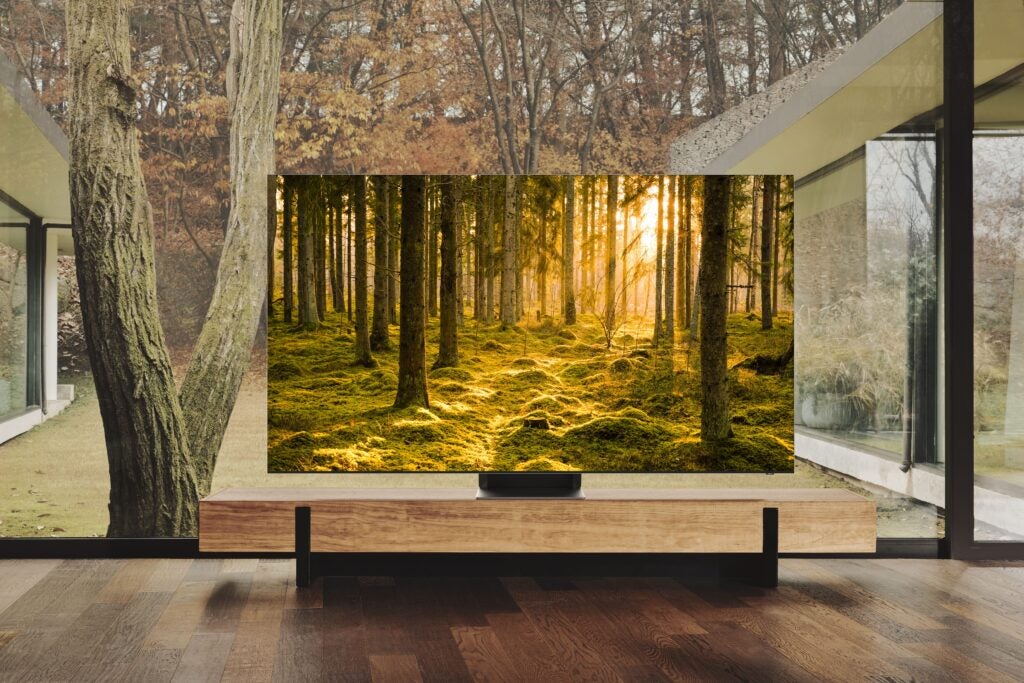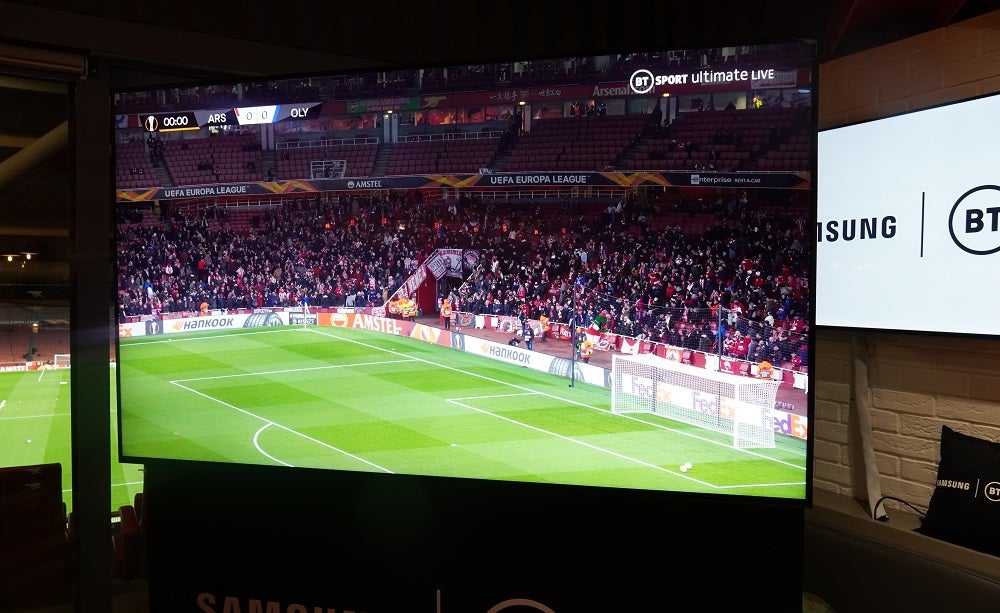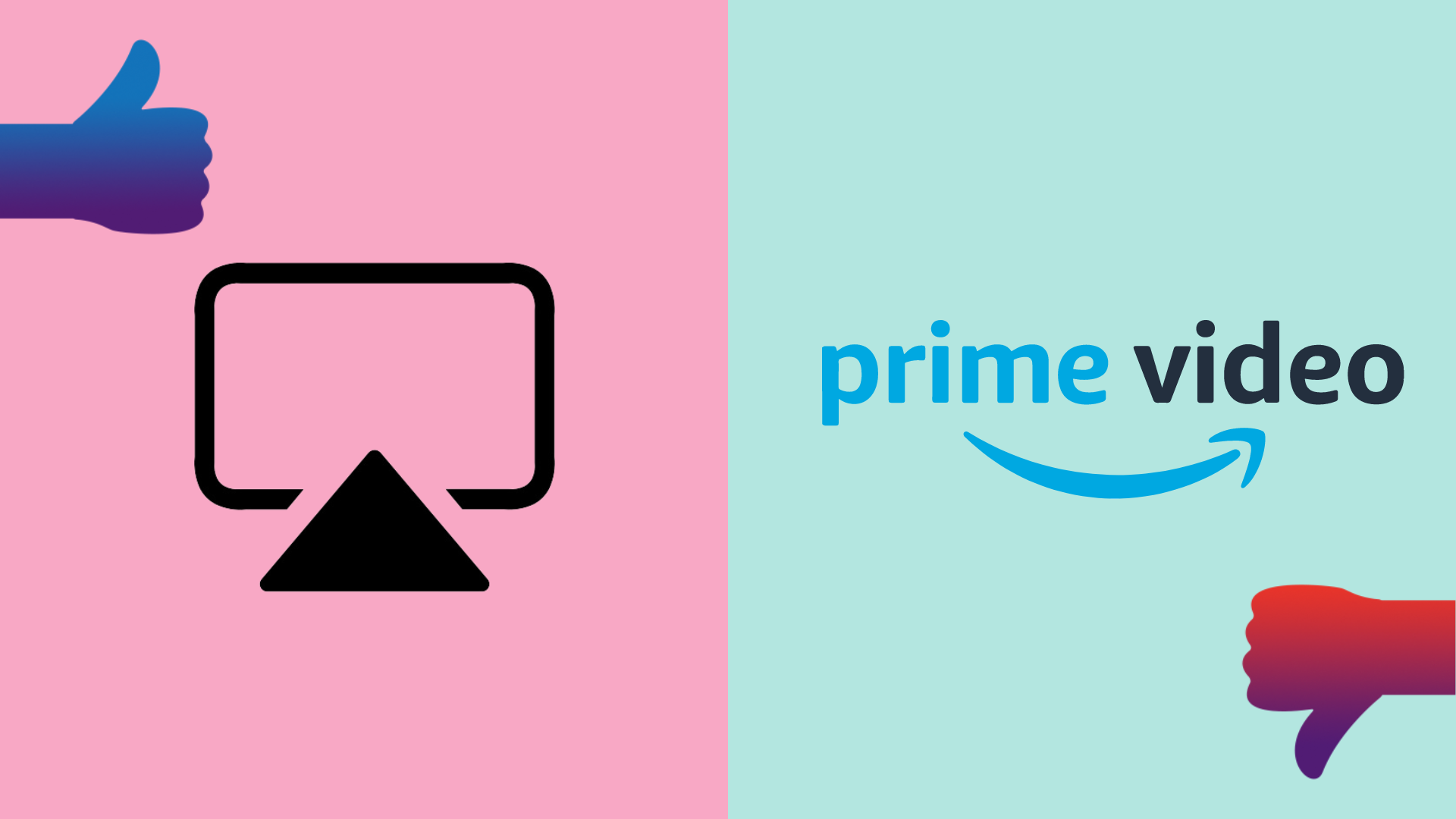Sound and Vision: Could the EU energy ruling put a stop to 8K’s tracks?

OPINION: 8K has experienced a rather rocky path into existence. Compared to 4K TVs they’re still relatively expensive for the mainstream appetite, there’s very little content to sample in the format, and to make things worse, if you live in the EU, you may not be able to purchase them in 2023.
Now that’s both an extreme and early reading of the situation but it is a possibility. It emerged around the IFA consumer event that the EU is set to bring in another round of regulation regarding energy consumption of devices in March 2023, and under those regulations, 8K TVs fall short of compliance.
The worst case scenario is that they will be made illegal to purchase in EU member states, and that applies not only to new models but models that already exist on the market, which can still be sold through to consumers but once the inventory is gone, that’s it.

That sounds like a rather drastic and avoidable turn of action, especially as it would seem that these regulations were devised with Full HD and Ultra HD sets in mind. 8K TVs need a considerable amount of energy to power the backlight and create the vivid images seen on screen, and this legislation would drastically reduce that ability.
It’s another issue to plague the emergence of 8K, which hasn’t really taken off in the manner manufacturers would (obviously) want it to. With profit margins for cheaper LCD TVs falling, 8K offers TV brands the ability to generate bigger margins with premium tech and higher pricing. But 8K has been around since 2018 and while we’ve loved the performance of some TVs in each generation, they’re not exactly flying off shelves.
I’ve been to a few product briefings regarding 8K and they’ve all extolled that 8K is on a similar path to 4K in terms of market saturation and reach, but the pandemic seemed to put a dent in sales and despite the “build it and they will come” philosophy behind 8K’s push; content in 8K is on the periphery and not many manufacturers have taken to plunge to produce 8K TVs.

I attended BT Sport’s 8K broadcast trial at the Emirates back in 2020 with the expectation that would be the start of BT Sport putting the format in front of its subscribers’ eyeballs. An 8K broadcast of a rugby league match earlier in 2022 would indicate it’s not been forgotten, but there’s not as much noise being made about it as I’d expect. News of that 8K broadcast felt very low key for what is an impressive technological feat.
Factor in that broadcasters are still locked into HD playback (you must pay to stream HD on NOW, which is absurd in this day and age); and prices are coming down slowly but remain relatively expensive (LG’s 77-inch OLED costs £11999) and 8K still feels like a technology of the future. Even 4K still feels as if it hasn’t permeated through to viewers, so how is 8K going to be perceived when there’s less content and it’s more expensive? Not kindly, I’d wager.
There’s still time for things to change regards the EU ruling with a review set for December 2022, and you’d imagine that some sense will be seen on the matter. Banning sales of 8K TVs would seem rather dim-witted and not particularly forward-thinking, but it’s another obstacle that 8K must navigate. To riff a quote from a famous film series, there’s no fate but what we make for ourselves, but unlike the antagonist in that series, 8K is showing signs of being stopped in its tracks.








